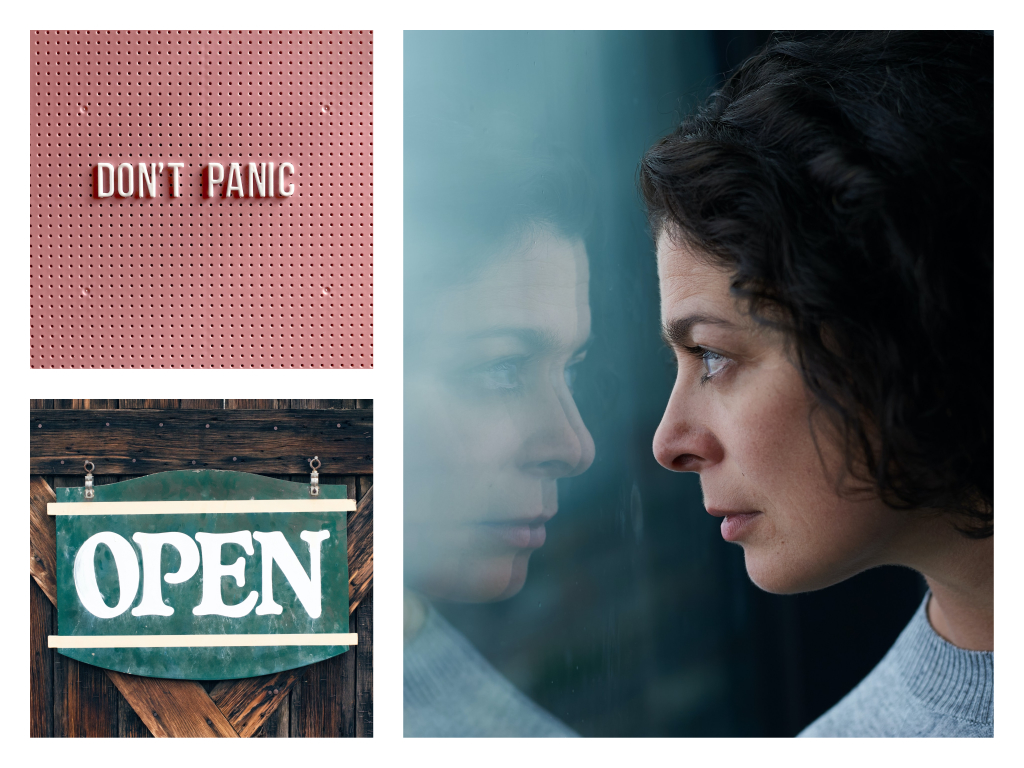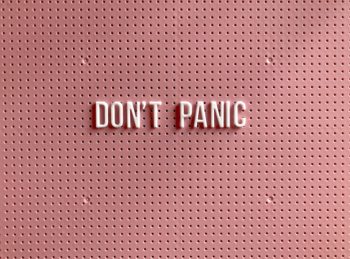
Anxious About Re-Entering Society? Here’s How To Cope With Social Anxiety Disorder In Our New World
Lifestyle Oct 18, 2021
As the world begins to re-open, social anxiety is at an all-time high. The better we can understand what social anxiety is, and how to identify its symptoms in ourselves and others, the better equipped we will be at coping with this potentially crippling form of anxiety as we re-enter our work and social environments.
Dr. Monica Vermani is a Clinical Psychologist specializing in treating trauma, stress and mood & anxiety disorders, and the founder of Start Living Corporate Wellness. She is a well-known speaker and author on mental health and wellness. Her upcoming book, A Deeper Wellness, is scheduled for publication in 2021. Please visit: www.drmonicavermani.com.
Dr. Vermani has recently launched an exciting online self-help program, A Deeper Wellness, delivering powerful mental health guidance, life skills, and knowledge that employees can access anywhere, anytime at www.adeeperwellness.com.
Social anxiety (also known as Social Phobia, SAD, or Social Anxiety Disorder) is defined as an intense fear and apprehension of social situations. It is specifically anxiety related to scrutiny, judgement, embarrassment and criticism by people. Disconnection, withdrawal, and isolation characterize the feelings and actions of people suffering from social anxiety.
People suffering from SAD struggle with irrational fears of being singled out, judged, ridiculed, ignored, or ostracized in social situations. They feel awkward, insecure, and bad about themselves. Many settings or situations that would cause most people temporary, passing nervousness, like speaking up in group situations, saying something inappropriate in front of strangers, or being negatively judged by others for exhibiting nervousness or unease, cause people with social anxiety overwhelming and long-lasting distress.

Unlike people who are suffering from agoraphobia (anxiety and avoidance of settings) people with social anxiety can sometimes avoid situations, and if not, they tend to experience tremendous distress and fear as they suffer through some, if not all, social settings. They can experience symptoms similar to panic attacks, including heart palpitations, racing negative thoughts, stomach pain, sweating, headaches, and muscle tension. Furthermore, as each negative social experience reinforces their fear, SAD becomes a stronger, more intense negative force. In some cases, SAD can lead to full-on panic attacks and cutting places out where one is agoraphobic and even housebound.
Returning To Normal With Diminished Self-Confidence
Many of us throughout our lives have relied on external sources for validation. We seek the approval of others, and this approval provides us a sense of confidence and puts us at ease. Because we have been self-isolating for an unprecedented period of time, more people than ever are experiencing a loss of confidence in themselves. Even though we have been looking forward to a time when we could again enjoy get-togethers with friends and family, now that we are able to meet, we’re feeling less than enthusiastic about upcoming social events.
As we return to a more open and ‘normal’ pace and flow of life, post-COVID, more people than ever are feeling less than comfortable in social and work settings. According to a May 21-23 online Leger poll, over 52 percent of Canadians reported feeling anxiety around reopening, with a whopping 68 percent of respondents ages 16 – 24 reporting high levels of social unease.
Since we are creatures of habit, some anxiety or nervousness about socializing after so much time spent in isolation is to be expected. Where this temporary anxiety becomes problematic is when anxiety causes people to make self-limiting choices. People struggling with SAD often limit or avoid social situations that make them anxious. In short, when SAD takes root, it can settle in and cause us to isolate, and this prolonged isolation adds fuel to the anxiety amongst others.

A New Level Of SAD
People who had struggled with social anxiety disorder prior to the pandemic shutdowns, have had something of a break from facing dreaded and feared social situations. While many people may have considered this an upside of pandemic isolation protocols, this prolonged lack of exposure has only increased fears of entering back into social settings. Just as a lack of exercise for months on end would weaken a muscle, month after month of sanctioned social isolation is likely to have negatively impacted those with SAD, and further diminished their social skills, courage, and self-esteem.
Many other people — even those who consider themselves socially confident and have been looking forward to getting back into the swing of things — find themselves struggling in situations they would normally enjoy. Awkward, overwhelmed, and uncharacteristically unsure of ourselves in social settings, many of us will find ourselves dreading upcoming social events, dinners, or family get-togethers in the weeks and months ahead. When dread leads to avoidance of feared social settings, social anxiety can take over.
What We Can Do About It
Feeling temporarily awkward or ill at ease, in unusual or stressful social settings is to be expected. It’s normal. The problem is when these feelings become problematic, that is to say, lead us to forecast negative events or settings, which lead to negative experiences (which can include distressing physical symptoms). In turn, this can lead to self-limiting avoidance behaviors or increased suffering in social situations. When we are held back in life by out symptoms, it’s a concern to address!
As we get back into the swing of things, it is important that we bring in awareness that after many months of isolation, many people will be struggling with symptoms of social anxiety. It is important to have compassion for ourselves and others. We can check in with ourselves, and take things slowly. We can also be mindful and kind to others who may be reluctant to engage in group activities or may wish to limit their time around other people. Helping ourselves and others to push through uncomfortable situations in a healthy way with limits and by bringing in healthy self soothing skills will help. We can employ the proven technique of exposure therapy — that is to say, exposing ourselves to regular, brief ‘social’ settings and build our tolerance — as a means of addressing our unease and fears of re-entering the world.

One of the key messages that emerged in the early days of the pandemic was that we are all in this together. Let’s remind ourselves, as we return to a more normal way of working, playing, and simply being in the world, that we are still in this together. In the weeks and months ahead, we will be coping with the after-effects of an unprecedented period of social isolation. With attention, self-care, and compassion, we can and support one another through the challenges of returning to normal.
Life at your highest and best!
Dr. Monica Vermani’s 5 Strategies For Re-Entry!
As we re-enter into a more open world, many people are feeling insecure about themselves and their ability to interact with others. At a time when social anxiety is more prevalent than ever, you can:
Have compassion for yourself and others. Remember, even the most confident and secure people could be struggling after unprecedented and prolonged isolation.
Take it slow. There is no reason to rush back into a full social schedule. Stay tuned in to your feelings. Know your limits.
Leave social situations when you are feeling overwhelmed, that you have had enough, or you feel drained of energy. When you feel it is time to leave, give yourself permission to go!
Practice exposure therapy if you’re struggling to join in with friends, family, or colleagues. Brief and frequent exposure to social situations will help alleviate fears and anxieties and restore confidence amongst others.
Seek help if you are struggling with overwhelming negative thoughts, symptoms, and self-limiting behaviors. It is helpful to work with a therapist on social anxiety concerns and learn Cognitive Behavioural Therapy and Mindfulness Meditation strategies and grounding techniques.
Main Image Photo Credit: www.unsplash.com
Dr. Monica Vermani
Author
Dr. Monica Vermani is a Clinical Psychologist who specializes in treating trauma, stress, mood & anxiety disorders and is the founder of Start Living Corporate Wellness. Her book, A Deeper Wellness, is coming out in 2021. www.drmonicavermani.com













































































































